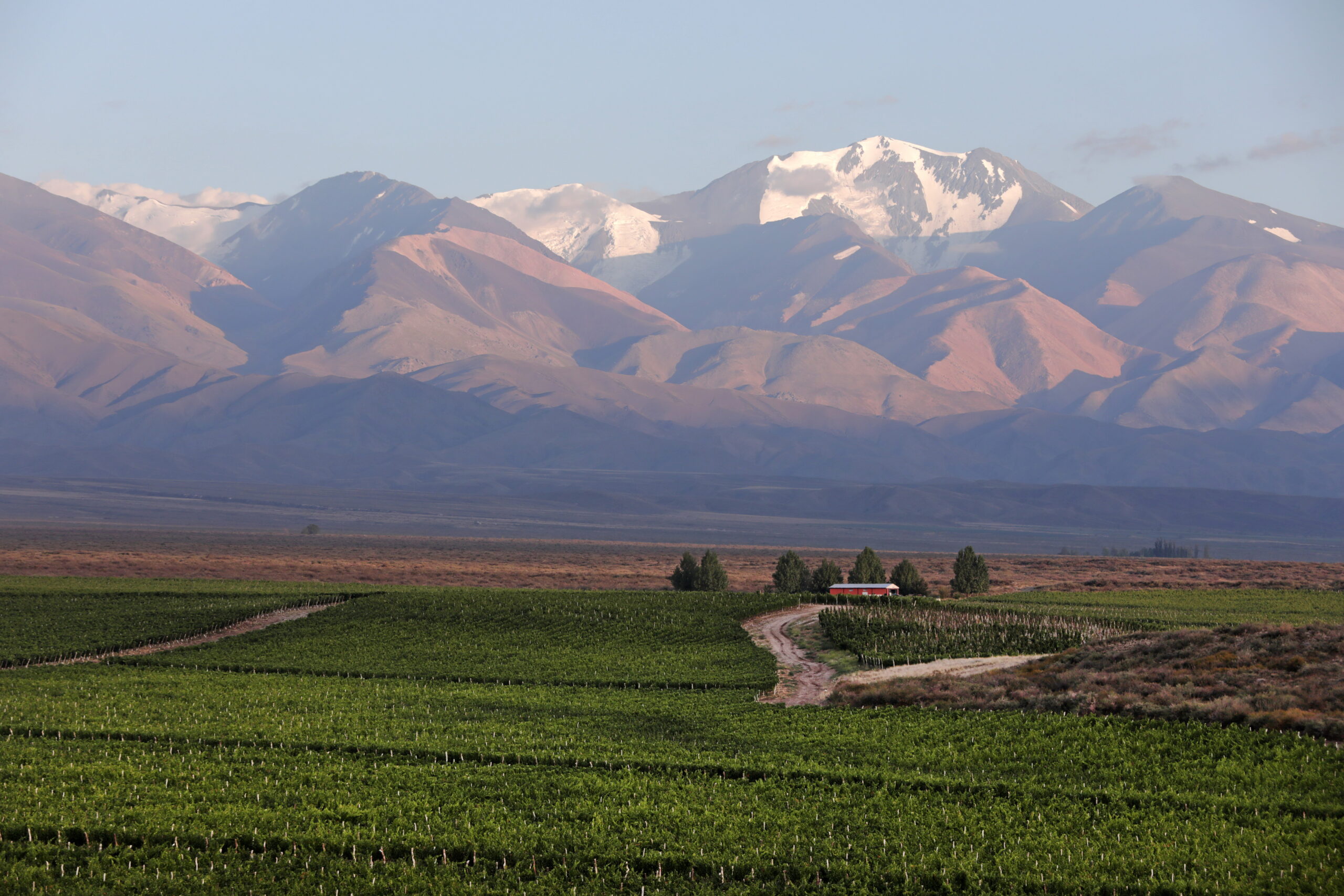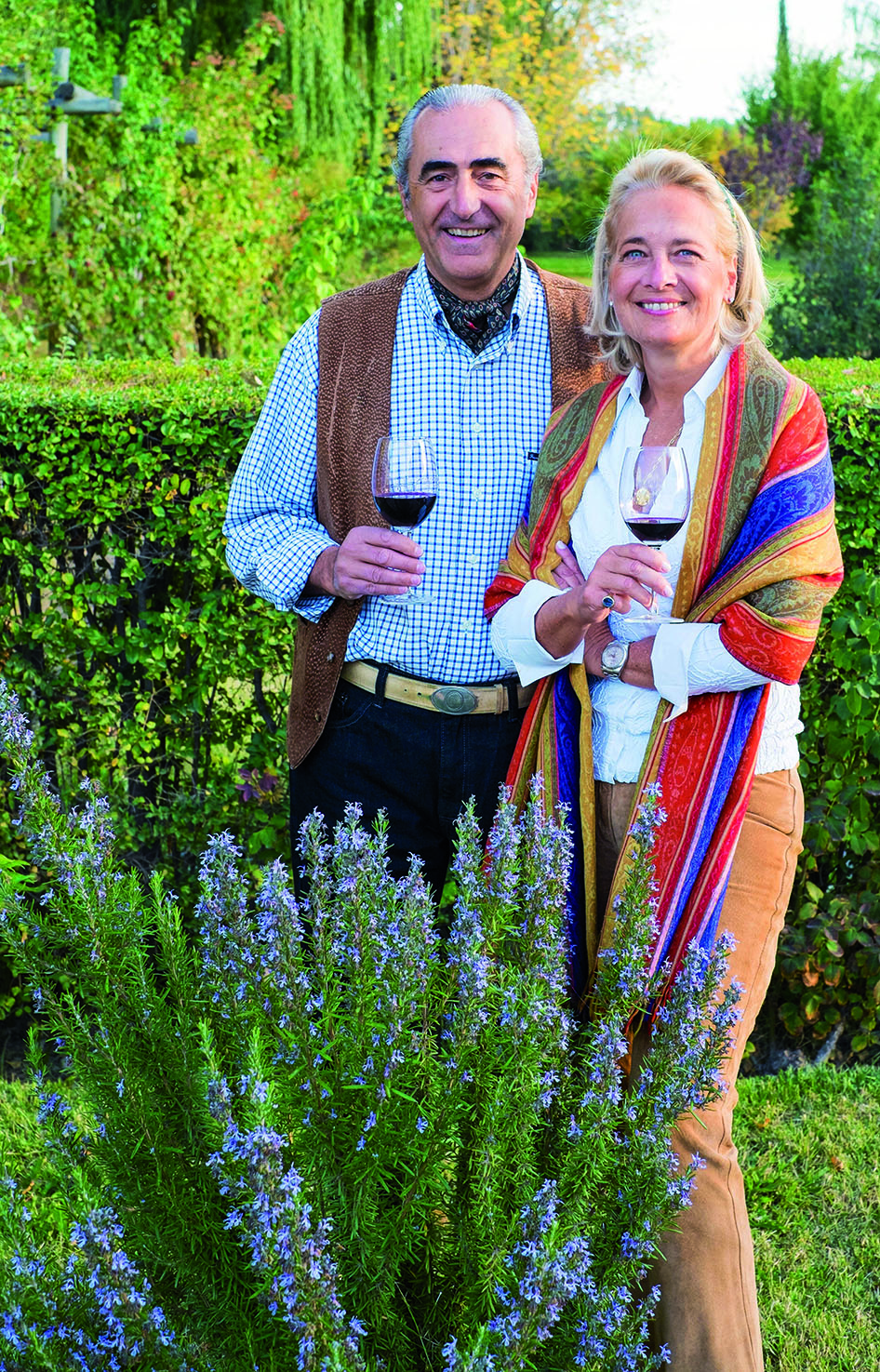
27 jun From Bordeaux to the Andes: How Hervé Joyaux Fabre Helped Redefine Argentine Wine
Some winemakers inherit vines. Others go looking for them. In the case of Hervé Joyaux Fabre, it was a bit of both — a legacy of Bordeaux running through his veins, and a leap of faith that took him halfway across the world to a country not yet known for premium Malbec. Today, Bodegas Fabre is a staple in conversations about Argentina’s finest wines. But long before the accolades, the awards, or the acclaim, there was a Frenchman in a rented car, tasting barrel samples from unloved Malbec vines — and thinking, this could be something.
Words by Albert van Beeck Calkoen
Images by Bodegas Fabre
A Bordeaux Beginning, with Argentine Ambition
Born in Bordeaux, Hervé grew up in a family where wine was always present but never pushed as a profession. His grandfather and great-grandfather had vineyards in Entre-deux-Mers and Graves, but by the time Hervé was old enough to care, the estates had been sold. Still, the seed had been planted. After an early career as a négociant, he knew that selling wine wasn’t enough — he wanted to make it, too. The turning point came in the early 1990s, when Hervé visited Argentina. Back then, most Malbec was used in blends, and single-varietal bottlings were far from fashionable. But he tasted something in those unblended samples — especially from older vines — that made him pause. “I could appreciate the quality of those Malbec wines, even before they were blended,” he recalls. “The trend for single-varietals hadn’t arrived yet, but I saw the potential.” It was a contrarian bet at the time. But then again, the French model — a château surrounded by its vines — wasn’t exactly typical in Mendoza either. That, too, was part of the appeal.
Building From Scratch, With Tradition in Mind
There was no family estate to fall back on, no inherited vineyard to revitalize. Bodegas Fabre was built from scratch — and Hervé was determined to do it his way. “I simply applied the methods I knew,” he says, referring to the classical Bordeaux techniques he brought with him. But adapting those to a new terroir was more than just a technical exercise. It was about philosophy — treating the land with respect, and listening to what the vines had to say. Building the team was a gradual process, marked by patience and a focus on long-term growth. He sought out young, talented professionals and gave them the chance to work abroad — in the northern hemisphere, during Argentina’s off-season. “It allowed them to perfect their knowledge,” he says, “and brought fresh perspectives into our cellar.”
In an industry often dominated by high-volume production, Hervé made a conscious choice to follow a different path. Rather than chase scale, he focused on expression — crafting wines that reflect not just a grape, but a place. “We prefer to multiply our ranges, rather than concentrate everything into one wine,” he explains. “It gives us freedom to showcase the differences between Mendoza and Patagonia, and to let the terroir speak.” The Phebus label, which he created, is a direct expression of that philosophy — making distinctive, terroir-driven wines that remain accessible to a broad audience.

Lessons From the Land — and Life
For Hervé, winemaking isn’t about mastering nature — it’s about respecting it. “I’ve learned that Mother Nature is the one in charge,” he says with characteristic humility. “We can’t control everything. The best we can do is work with what she gives us.” Sustainability is now embedded in Argentine viticulture, but it wasn’t always. In the 1990s, many large producers followed industrial models that left little room for the kind of craftsmanship Bodegas Fabre embraced. Over time, however, tradition and quality won out — and Hervé’s once-unconventional methods became widely accepted.
What’s remarkable is how little of this was guided by market trends. Hervé is not a follower of fads. He reads trade journals, listens to his customers, and keeps up with the wine world year-round — but he trusts his instincts. “When you’re passionate about what you do,” he says, “those habits come naturally. They don’t feel like effort.” His entrepreneurial advice is refreshingly pragmatic. “No one can be good at everything — viticulture, winemaking, and sales. My advice? Partner with someone who complements your strengths. If you’re passionate about growing, find someone who understands the market. And vice versa.”
Milestones, Setbacks, and One Defining Moment
Any entrepreneurial journey comes with its challenges, and Bodegas Fabre is no exception. Argentina can be a difficult place to do business, from limited access to financing to political and economic instability. Hervé doesn’t claim to have solved these problems — but he views them as part of the learning curve. “Starting a business in Argentina is an education in itself,” he says with a smile. “It teaches you a lot, whether you want to learn or not.”
If there’s one turning point he holds closest, though, it’s not tied to a vintage or a vineyard. “Without a doubt, it was when my wife Diane entered my life — and joined the company,” he says. It’s clear that Fabre Montmayou is as much a family endeavor as it is a business, and the next generation is already in view: “Our goal in the coming years is to prepare the children of our partner to take over.”
A Lifestyle, Not Just a Livelihood
When asked what viticulture means to him beyond the business, Hervé doesn’t hesitate: “It’s a way of life. It brings us closer to nature — and to people of quality who share the same passion. He sees wine as a rare intersection of agriculture, craftsmanship, and commerce — a balance that keeps things fresh, year after year. “It’s one of the few professions where you can do all three,” he says. “It’s impossible to get bored.”
And if there’s one lesson he would share with anyone embarking on a similar journey, it’s as poetic as it is practical:
“Work hard. That’s the one thing we never run out of.”
— Jean de La Fontaine




Geen reactie's